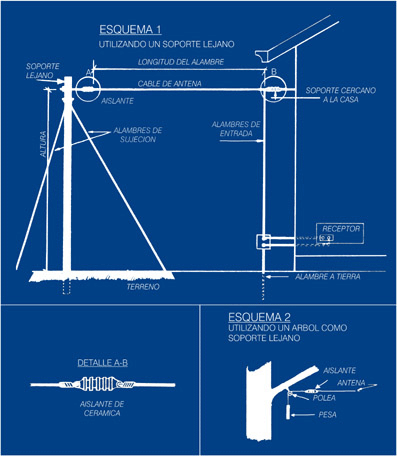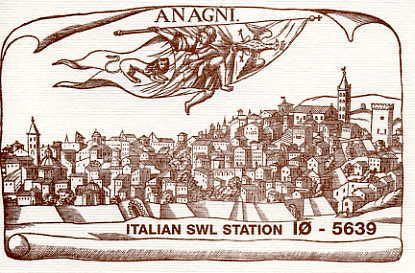Early radio stations would advertise quaint or wacky slogans to help listeners remember their call letter IDs. An unwieldy one from Orange County's first station: "KFAW: Kept From Awful Winters.'
By Steve Harvey July 12, 2009
When KGFJ went on the air in 1927, the radio station explained that its call letters stood for "Keeping Good Folks Joyful." Especially good insomniac folks, since it was L.A.'s first 24-hour station. KGFJ stayed on the air at AM (1230) until 1996.Less fortunate were the founders of Orange County's first radio station, whose unwieldy slogan was "KFAW: Kept From Awful Winters." The 10-watt operation folded in 1925 after just three years, having received a chilly reception from the estimated 1,500 radio owners in Orange County.
Today, in the age of digital radios, media conglomerates and brand names, call letters are de-emphasized. Some stations reveal their IDs only at the top of the hour as required by law, often "nearly buried among a cluster of commercials," historian Jim Hilliker wrote for laradio.com.For instance, you have to listen carefully to find out that "93.1 JACK-FM" is KCBS or that "MY FM 104.3" is KBIG.A colorful era has passed.In the industry's formative years, when the government serially assigned call letters, stations would advertise sometimes quaint or wacky slogans to help listeners remember the IDs.KHJ settled on "Kindness, Happiness, Joy," and broadcast the singing of three canaries with those names. "I read that they also considered 'Knowledge, Happiness, Judgment,' " Hilliker said. Despite the lack of "judgment," the station survives at AM (930).Other early stations, which have since vanished from the ether, strained to be creative. KGEF tried out "Keep God Ever First" and then "Kind Gentle Empathetic Friend."Plainly, the government policy of beginning call letters in the West with a "K" was a problem for local sloganeers.KOG experimented with "Kinema on Grand" -- it was in a theater in downtown L.A. -- while Avalon-based KFWO's "Katalina for Wonderful Outings" shut down after three years.Radio evangelist Aimee Semple McPherson, founder of the International Church of the Foursquare Gospel in Echo Park, saw the importance of call letters for her station.Hilliker, searching in the National Archives, found a 1924 telegram in which McPherson asked the Department of Commerce if it might "favor us" by switching the station ID from KFNC to "the more appropriate" KFSG, the initials of Foursquare Gospel. Sister Aimee's wish was granted; the church broadcast until 2003. Radio stations often neglect their own histories. "It could be that everyone is so caught up in the need to make advertising dollars they don't have the time to look to the past," Hilliker said.A former radio broadcaster, journalist and disc jockey who grew up in Anaheim, Hilliker, 54, has a particular interest in Southern California radio of the early 1900s."Maybe I was born in the wrong era," he said.He has written several long pieces for laradio.com based on government documents, newspaper microfilm, industry magazines and interviews with old radio hands. All for no pay. "A labor of love," he said.Currently between radio jobs, Hilliker hopes to put his findings into a book titled "L.A. Radio Scrapbook." One treasure he's searching for is another telegram written by McPherson. Responding to charges that her station was secretly shifting frequencies, she supposedly told Commerce Secretary Herbert Hoover: "Please order your minions of Satan to leave me alone."Though the telegram is mentioned in some books about McPherson, Hilliker notes that no copy has ever surfaced. His research has found no other instance in which she used the phrase "minions of Satan."Hilliker has also cast doubt on some Internet legends about call letters -- that KFI once promoted itself as the home of "Farm Information" and that KNX was so named because it was in the annex of a downtown building.In truth, KNX's letters were issued by the government.In the late 1920s, station owners were allowed to pick their own call letters. Many used the IDs to honor themselves or their businesses.In 1931, E.L. Cord, owner of a Fuller Motors dealership and producer of Auburn and Cord automobiles, chose KFAC, his business initials, for his station. Cord's studio was in the penthouse of the dealership on Wilshire Boulevard. It's now KWKW-AM (1330).KMPC-AM (710) was so named because it was briefly owned by MacMillan Petroleum Co. The station later discarded those letters; they are now used by Radio Korea at AM (1540). Though many call letters may seem unappreciated, such is not the case with KHJ. In 1986, it was re-christened KRTH, went through a couple of owners and wound up as a Spanish-language station, KKHJ.Management, however, complained that the "KK" was close to "caca" (Spanish slang for excrement). So the FCC allowed it to recycle the old KHJ name, bringing the owners happiness, if not joy.steveharvey9@gmail.comSource:Los Angeles Timeshttp://www.latimes.com/news/local/la-me-then12-2009jul12,0,3071994.story
Imagen taken from: Dave's Place http://www.geocities.com/djkrcl/fj090175.htmlVia Yimber Gaviria, Noticias de la Radiohttp://yimber-gaviria.blogspot.com
sábado, 11 de julio de 2009
Suscribirse a:
Enviar comentarios (Atom)


No hay comentarios:
Publicar un comentario